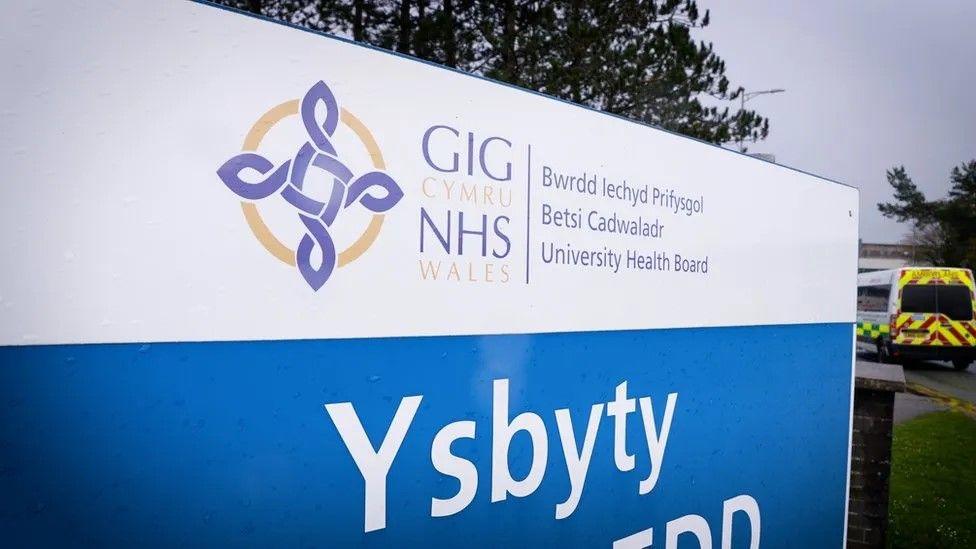Woman died a month after 23-hour ambulance wait

At the hearing, senior NHS managers said the health service is working hard to reduce delays for ambulances and hospital emergency departments
- Published
The chief executive of Wales’ biggest NHS organisation has said she hopes ambulance delays will start to reduce in the next 12 months.
Carol Shillabeer, head of Betsi Cadwaladr University Health Board, was speaking at an inquest into the death of a woman who waited almost 23 hours for an ambulance in 2021.
A verdict of accidental death was recorded on Gwyneth Jones, 84, from Holywell, Flintshire, who died a month after a fall which led to bleeding on her brain.
Senior NHS managers gave evidence at the hearing, and said the health service was working hard to change the system and reduce delays for ambulances and at hospital emergency departments.
Coroner John Gittins had summoned the chief executives of Betsi Cadwaladr - the board which covers north Wales - and the Welsh Ambulance Service to give evidence at the inquest in Ruthin, Denbighshire, into delays getting people to hospital and getting them into a bed to be treated.
Mr Gittins said he had conducted many inquests where ambulances had been delayed arriving, and wanted to look in detail at the wider problem.
Jason Killens of the ambulance service said the number of crews available to respond to emergency calls was now bigger than ever, as was the number of ambulance vehicles.
But he said: “The pressure continues - on average, we are losing 20% to 25% of our capacity each month because of issues in handing people over at hospital emergency departments.
“The answer is not more ambulances - they’d just end up joining bigger queues outside hospitals.
“We also have to manage more people in the community and avoid taking more people to hospital in the first place."
Mrs Jones lived at Llys Gwenffrwd care home in Holywell, but on the morning of Sunday 25 October 2021, staff found her on her bedroom floor after hearing a loud bang.
They called an ambulance, but it was the morning of the following day before it arrived, 22 hours and 33 minutes after the original call.
Mrs Jones was taken to hospital, checked and discharged, but back at the care home the following day, she started to show symptoms similar to having had a stroke.
She was taken back to hospital, where medical staff found she had suffered a subdural haematoma, or a bleeding between her brain and skull.
Despite treatment, she died a month later.
In a statement released after the inquest, Ms Shillabeer offered her sincere condolences to the family of Mrs Jones.
“This inquest has really helped to highlight the issues in emergency care and how it’s a symptom of bottlenecks in the wider health and social care system," she said.
“We are working closely with all partners, including the Welsh Ambulance Service and other public sector partners, to work smarter and accelerate discharges for those who are medically fit to leave our hospitals.
“This will help reduce pressures on emergency departments and ambulance services."
An earlier version of this story wrongly said that Carol Shillabeer said the death of Gwyneth Jones "really helped" to highlight emergency care issues. In fact, she said the inquest "really helped to highlight the issues in emergency care".